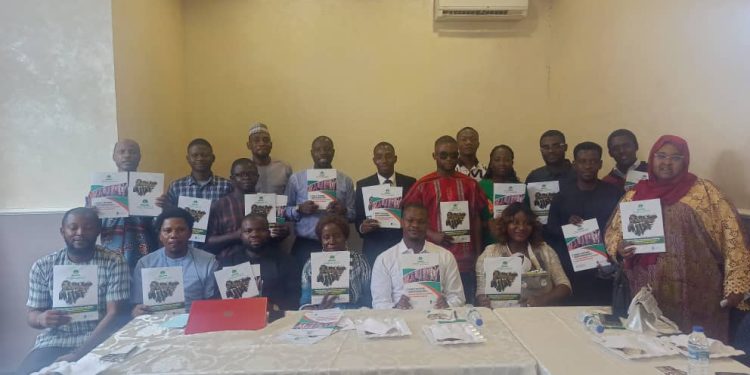The Civil Society Legislative Advocacy Centre (CISLAC) and Transparency International have called for the prioritization of gender inclusion and an urgent reform in Nigeria’s defence and security sector.
The groups lamented what they described as widespread corruption and lack of transparency in the defence and security sectors, which has led to devastating consequences for the country and its citizens
The groups, during a press briefing and dissemination of Policy Briefs on anti-corruption in the defense and security sector in Lagos, shared that the policy briefs spotlighted gaps in gender and operational disparities within the defense and security sector.
They also lamented that corruption has become a major obstacle in tackling the rising insecurity facing the country.
CISLAC’s Executive Director, Auwal Ibrahim Musa (Rafsanjani), said the sector’s strategic role in combating Nigeria’s multidimensional security threats, ranging from terrorism by Boko Haram and ISWAP to internal challenges like banditry and kidnapping is being marred by corruption and opacity, undermining its operational effectiveness and public trust.
He said, “Major drivers of corruption in the Defence and Security sector include shaddy procurement process; excessive secrecy in procurement process and spending; inter-agency rivalry; inflated procurement and ‘Phantom Contracts; delayed appropriation process; weak oversight activities.
“These challenges in effect, have hitherto hampered counter-terrorism operations; empowered insurgency and discouraged front-line troops; endangered security of lives and property; threatened democratic governance mechanisms; limited operational effectiveness; lowered morale and regard for the defence institutions.
“Just as the commitments and expertise necessary to implement sustainable changes were not always available, the military governance mechanisms were not always fit-for-purpose and the troops often under-resourced.”
Highlighting a case in point, Rafsanjani referenced a 2022 raid by the Independent Corrupt Practices Commission (ICPC) on a military contractor’s residence, which uncovered ₦1.8 billion in cash, luxury vehicles, and other assets allegedly linked to illicit military procurement contracts.
He, however, noted that perpetrators of corrupt activities in the sector often go unpunished by the authorities in order to protect certain political interests.
“More importantly, a recent analysis indicated that over 80% of military personnel have been deployed in internal security operations across the 36 states of the nation with whopping sums budgeted for insecurity nationally. This goes to show that the prolonged fight against insecurity, even though very expensive, is yet to record the desired impact or effectiveness.
“Similarly, military operations in recent times have been over-weaponised to pave way for continued procurement and diversion of weapons funds as well as unaccountable engagement of foreign Private Military Companies. For instance, in June 2022, Independent Corrupt Practices and Other Related Offences Commission (ICPC) raided a home of the Managing Director of K. Salam Construction Company, a military contractor in Abuja, in suspicion of money laundering.
“The Commission allegedly recovered over N1.8billion cash and other items from the property including G-Wagon; 2022 editions of BMW and Mercedes Benz cars; customized mobile phones; several designer wristwatches, including three Rolexes, and some property documents,” Rafsanjani said.
The groups warned that failure to address corruption in the defence sector will continue to undermine Nigeria’s effort to combat insecurity.
While speaking to journalists about the policy briefs on financial management, gender issues, and operational challenges in the sector, Jimoh Abubakar, Program Officer CISLAC tasked the media to set the agenda for independent oversight and reform, leveraging investigative reporting to hold stakeholders accountable.
“The need for media agenda setting to provoke independent oversight and immediate reform in the defence and security sector cannot be over emphasized, particularly with respect to financial transparency, gender inclusion as well as operational disparities as these have significantly impacted the overall integrity and efficiency of the sector,” he said.
The policy briefs were produced by CISLAC, in collaboration with Transparency International Defence and Security Project (TI-DSP) with support from the Ministry of Foreign Affairs of the Netherlands.

